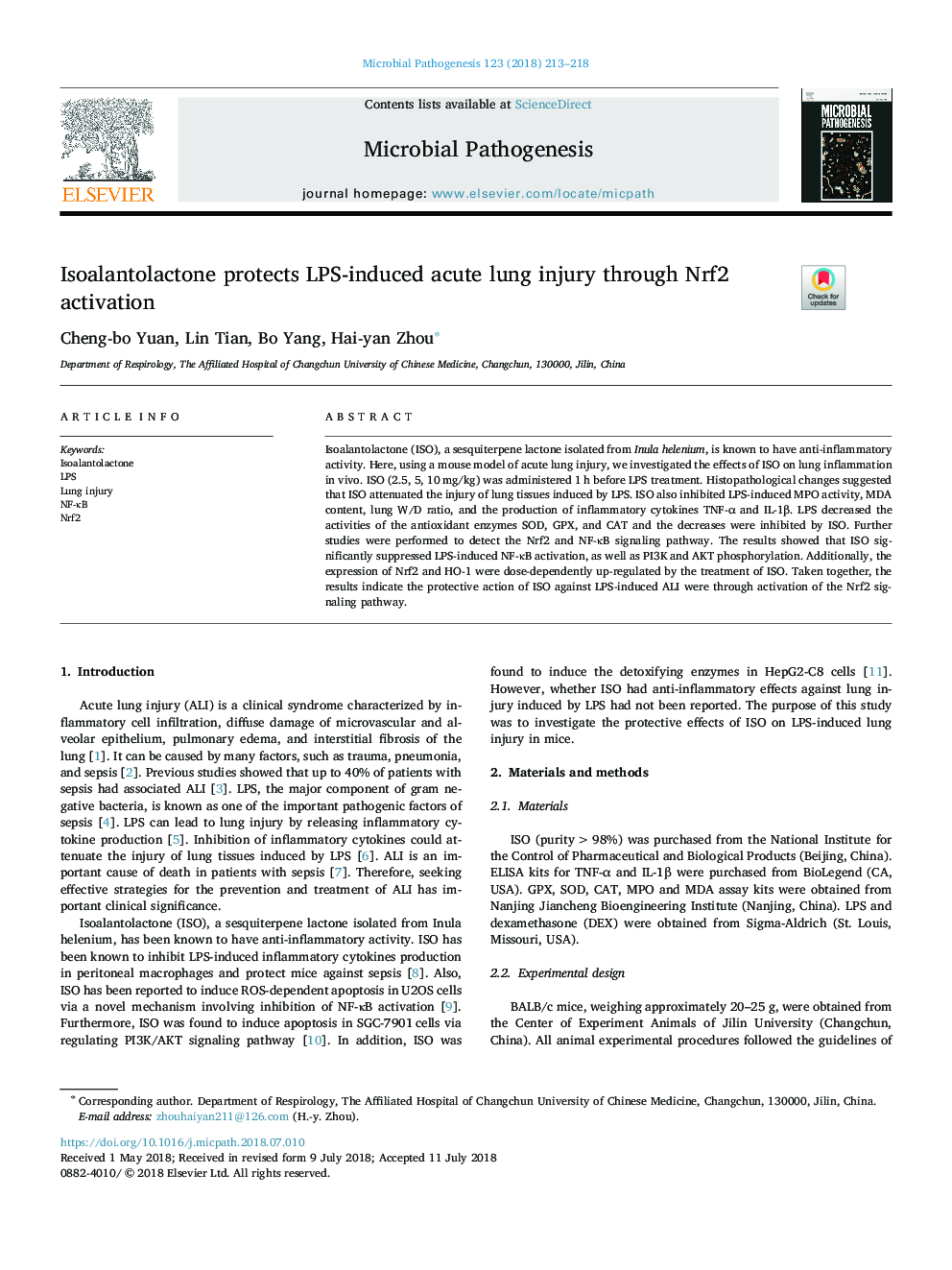| Article ID | Journal | Published Year | Pages | File Type |
|---|---|---|---|---|
| 8749150 | Microbial Pathogenesis | 2018 | 6 Pages |
Abstract
Isoalantolactone (ISO), a sesquiterpene lactone isolated from Inula helenium, is known to have anti-inflammatory activity. Here, using a mouse model of acute lung injury, we investigated the effects of ISO on lung inflammation in vivo. ISO (2.5, 5, 10â¯mg/kg) was administered 1â¯h before LPS treatment. Histopathological changes suggested that ISO attenuated the injury of lung tissues induced by LPS. ISO also inhibited LPS-induced MPO activity, MDA content, lung W/D ratio, and the production of inflammatory cytokines TNF-α and IL-1β. LPS decreased the activities of the antioxidant enzymes SOD, GPX, and CAT and the decreases were inhibited by ISO. Further studies were performed to detect the Nrf2 and NF-κB signaling pathway. The results showed that ISO significantly suppressed LPS-induced NF-κB activation, as well as PI3K and AKT phosphorylation. Additionally, the expression of Nrf2 and HO-1 were dose-dependently up-regulated by the treatment of ISO. Taken together, the results indicate the protective action of ISO against LPS-induced ALI were through activation of the Nrf2 signaling pathway.
Related Topics
Life Sciences
Immunology and Microbiology
Microbiology
Authors
Cheng-bo Yuan, Lin Tian, Bo Yang, Hai-yan Zhou,
